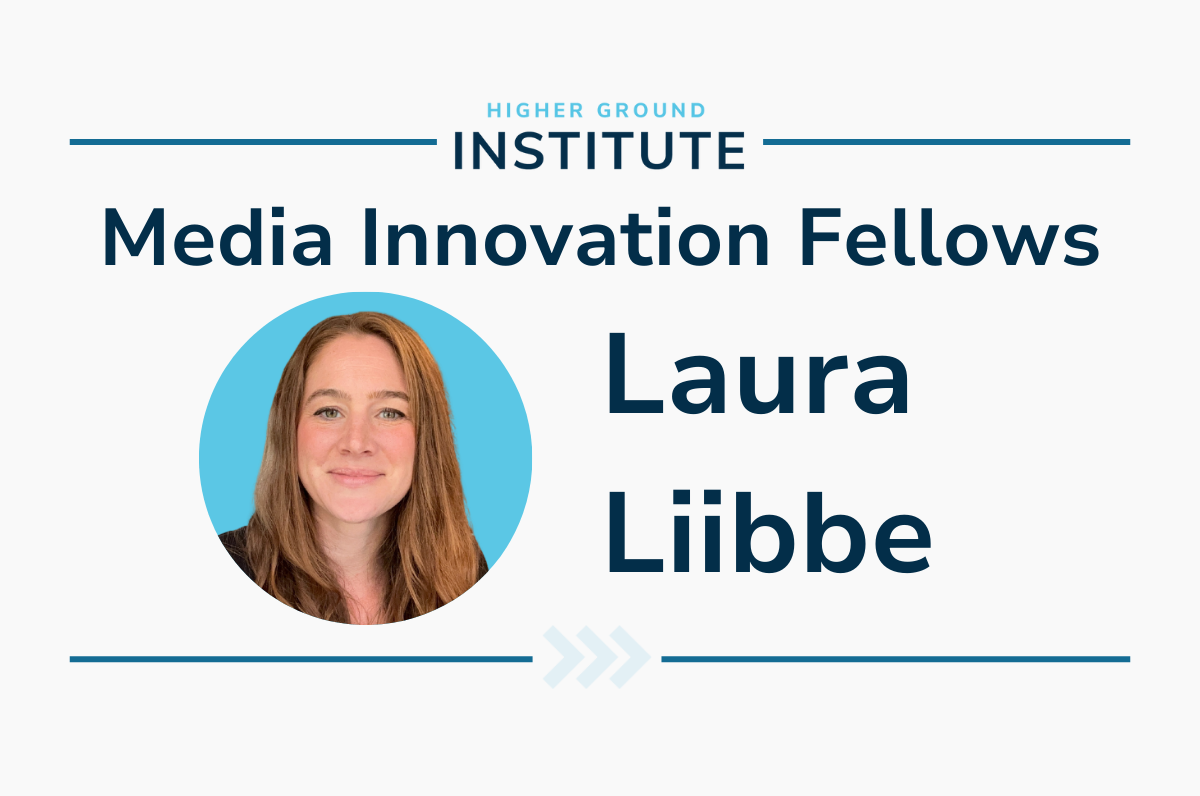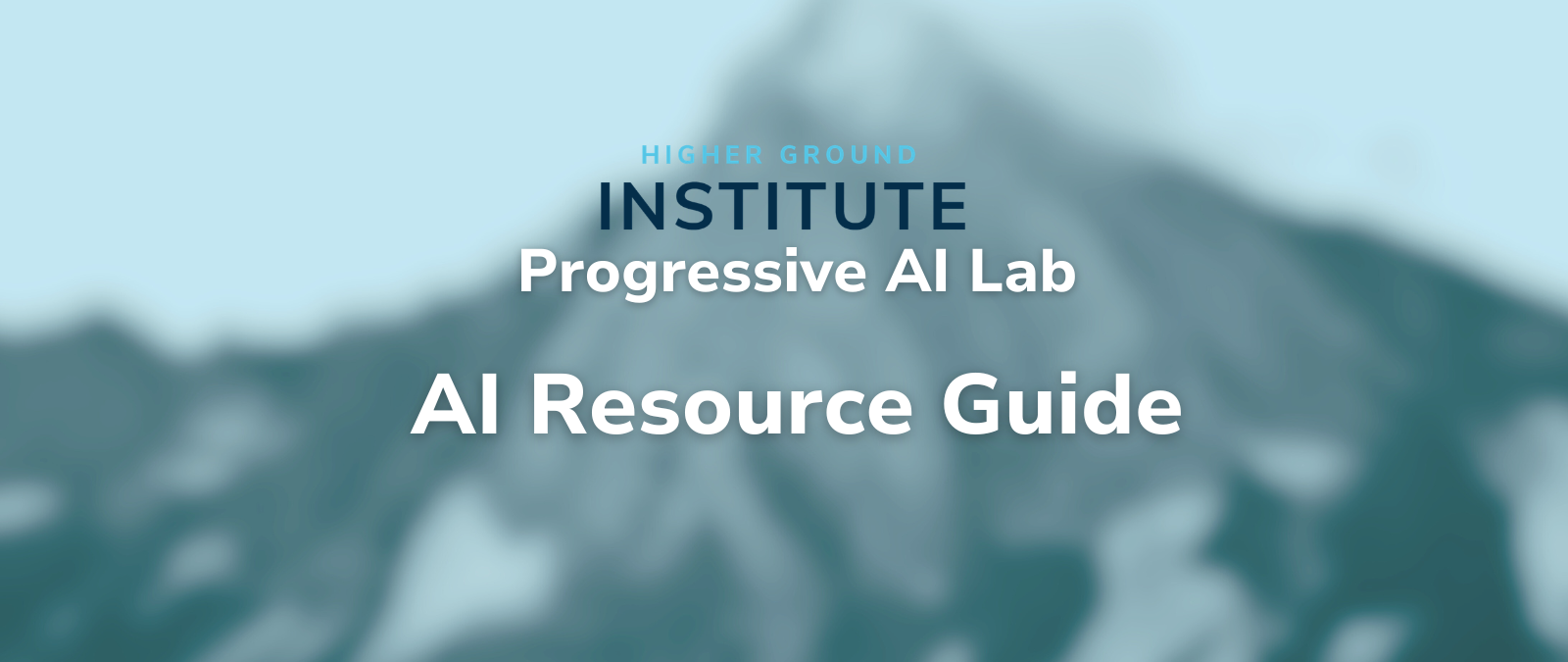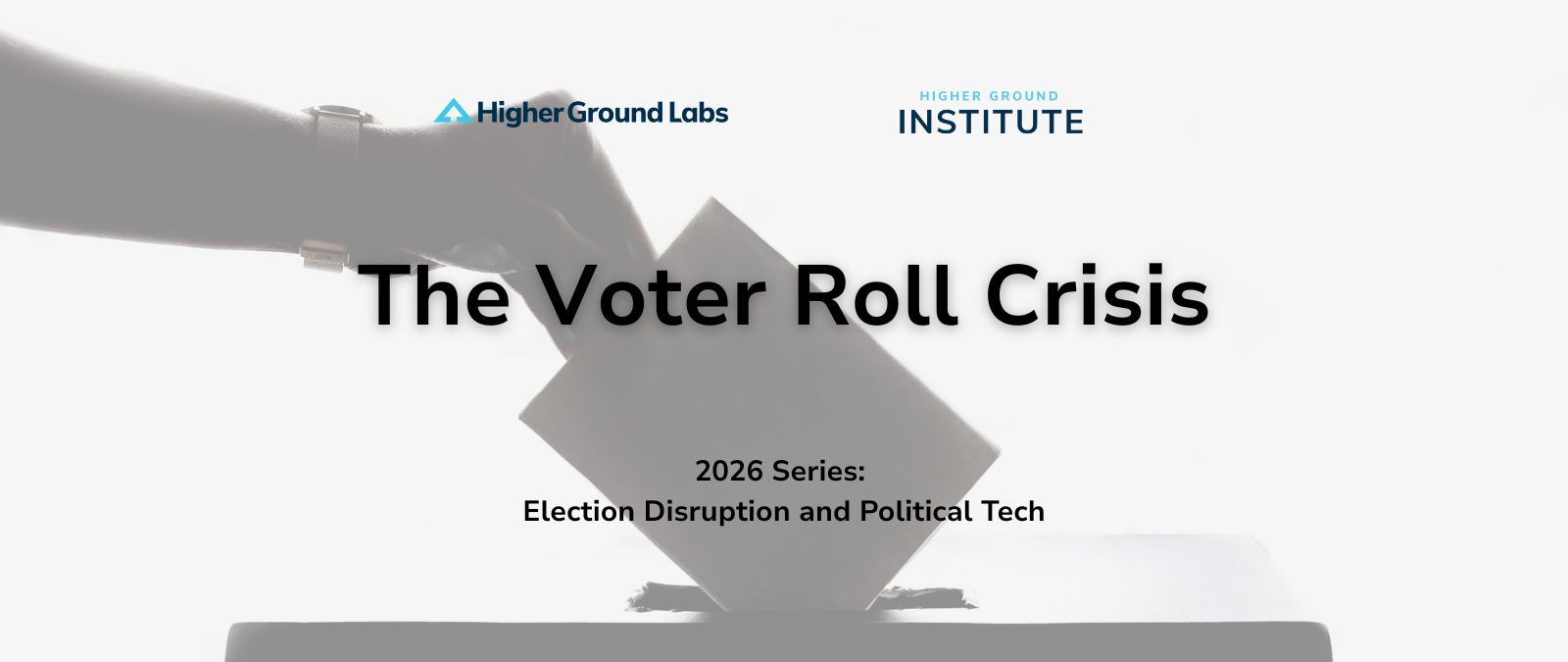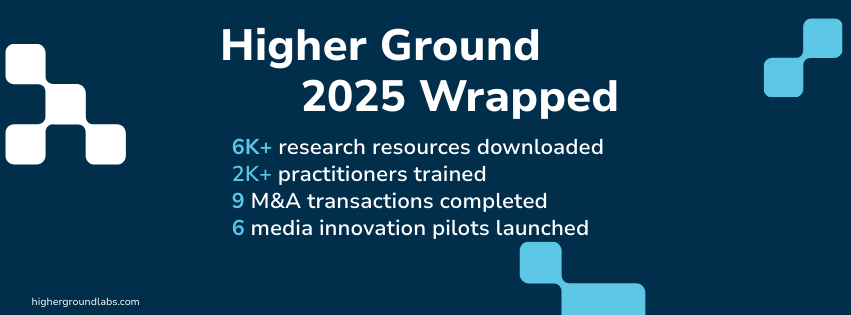As part of Higher Ground Institute’s 2025 Media Innovation Fellowship, we’re spotlighting six visionary leaders shaping the future of progressive media. Each Fellow is tackling urgent challenges at the intersection of technology, civic engagement, and storytelling—developing tools, strategies, and frameworks that will push our movement forward.
One of HGI’s Media Innovation Fellows is Laura Liibbe—a media strategist and product leader with more than 15 years of experience connecting immigrant communities with trusted, actionable information. At Noticias Para Inmigrantes, Laura has scaled progressive media products to reach millions of Spanish-speaking Latinos, leading deep audience research and pioneering innovative approaches on platforms like WhatsApp to deliver multilingual, culturally rooted content that informs and empowers.
Through her project, Trusted Messaging: Strengthening Community & Civic Participation Through WhatsApp, Laura is addressing a critical gap in progressive outreach. She and her team are developing a practical playbook for using WhatsApp Channels as high-trust infrastructure to inform, mobilize, and sustain engagement among Latino and immigrant audiences. Drawing on years of experimentation with millions of users, Laura’s work will provide the broader progressive ecosystem with tested, scalable models for civic information and activation to meet communities where they are in the language and spaces they trust most.
We spoke with Laura about the personal experiences that shaped her vision, why WhatsApp remains an overlooked tool in U.S. politics, and how she sees messaging platforms transforming the media landscape for immigrant communities.

HGI: What inspired you to apply for the HGI Media Innovation fellowship?
Laura: When I started working in digital media and specifically trying to hack WhatsApp, I didn’t know how to set it up or what experiments to run. I wish I’d had a playbook to reference. Since then, my organization Noticias Para Inmigrantes has built a massive audience of over six million Spanish-speaking Latinos across digital media platforms. I wanted space to step back, synthesize what we’ve learned, and build something that could help the broader ecosystem. The HGI fellowship has allowed me to network, exchange feedback, and share actionable insights within and outside of my community.

HGI: How did your personal background and professional experiences plant the seed for this project?
Laura: I come from a background in direct services and community organizing—helping refugees navigate systems, talking to parents in waiting rooms, advocating for access to public benefits, translating government forms. That frontline work showed me how deeply people trust those who speak their language, literally and culturally. Over time, I moved into digital media because I saw how technology could scale that trust. Everything I build now is rooted in that same goal: to make information feel human, accessible, and empowering to ensure the most vulnerable people get access. At a more systemic level, I’m working to ensure immigrant voices are heard, and voting and registering to vote is easy for working-class immigrant citizens.
HGI: What problem or opportunity are you aiming to address as a Media Innovation Fellow?
Laura: Progressive campaigns often struggle to connect with Latino audiences in ways that feel genuine. At the same time, Latino communities are highly active in private digital spaces like WhatsApp, yet most organizations and campaigns aren’t using these tools well. Even when they want to, they often default to treating WhatsApp like SMS, which simply doesn’t work. WhatsApp requires its own strategy, not a copy-paste approach. My project aims to bridge that gap by creating a practical playbook for using WhatsApp Channels and tools to inform, mobilize, and build long-term power in immigrant communities. It will also guide organizations on when and how to invest in WhatsApp, whether by launching their own programs or partnering with digital media outlets, like ours, that have already built engaged audiences there.
HGI: How does your project address the gaps in digital engagement or communications for progressive campaigns?
Laura: We talk a lot about “meeting people where they are,” but we rarely operationalize that for communities that primarily communicate in Spanish or non-English languages, on mobile, and in private spaces. This project offers a roadmap to do just that—drawing on real experiments we’ve run with millions of users. It also redefines what engagement looks like beyond likes and shares, focusing instead on trust, consistency, and action.

HGI: In what ways is your approach leveraging innovation or emerging technologies differently than current tools or strategies?
Laura: A lot of digital strategy still revolves around public platforms—paid or algorithmic approaches, which are costly or unpredictable, and hard to crack (e.g. Instagram, Twitter, TikTok). But messaging apps like WhatsApp are where real community lives. By focusing on WhatsApp Channels and experimenting with WhatsApp Business, we’re exploring how media orgs and campaigns can build persistent, two-way relationships—hopefully with a diverse audience. It’s less about flashy moments and more about showing up consistently in someone’s pocket, and then asking them to take action.
HGI: How do you see the role of WhatsApp and other messaging platforms evolving in the media landscape, especially for reaching specific communities?
Laura: Messaging platforms will become the core infrastructure for trusted communication. Informal communication that is interesting and in the moment beats TV because it is often relational too. I see messaging platforms evolving from passive channels to active hubs for organizing, education, and even service delivery. The organizations that learn to use these tools well will be the ones that build lasting power. I think we will start to see SMS diminish and more use of WhatsApp Channels and chats for relational organizing.
HGI: Why do you think WhatsApp is still not mainstream-adopted in political campaigns and organizing in the U.S.?
Laura: One major reason is that many people running progressive orgs and campaigns in the U.S. simply don’t use WhatsApp themselves. It’s not a platform rooted in white American digital culture, so it gets overlooked. Another simple reason is that it’s harder to figure out than SMS, and there is no playbook! But the reality is, in nearly every other country, WhatsApp is the primary communication tool. That includes immigrant communities in the U.S., who rely on it to stay connected with family abroad and often use it more than SMS. So while political campaigns pour energy into email and text banking, they’re ignoring a space that already holds deep trust and daily use among key audiences. WhatsApp isn’t just a messaging app. It’s infrastructure. And we need to catch up.
HGI: What’s one popular assumption or myth that you’re excited to challenge or disrupt?
Laura: People engage when the message feels relevant, when the format makes sense, and when it’s delivered with respect. If someone isn’t engaging, the first question should be: Are we showing up in the right way? Or that Latino citizens speak English – the data does show this is true, but what about when Spanish is preferred? Lots of new citizens might speak English but prefer their information in Spanish and in a trusted community setting.

HGI: What are some key lessons you’ve learned about engaging immigrant communities digitally?
Laura: Trust is everything. That starts with showing up consistently, honoring language and culture beyond simple translation, and making it easy for people to take action. We’ve found that humor, affirmation, and clear, straightforward information are incredibly effective. From my work with Accelerate Change, I’ve also learned that people are far more likely to engage when outreach comes from a trusted community entity rather than directly from a politician.
HGI: What will the space look like if/when your project has succeeded?
Laura: If this works, we’ll see a wave of civic orgs, immigrant advocates, and local media using WhatsApp in strategic, scalable ways as well as see budgets allocated to reach audiences together with digital media entities, who are more likely to reach a wider net of potential voters rather than existing supporters. Latino audiences will feel more informed, more confident, and more connected to campaigns and services that represent them. We’ll stop treating Spanish-speaking audiences as an afterthought—they’ll be a core part of digital strategy from day one.
HGI: What keeps you optimistic about the future of the progressive movement?
Laura: We’re in a moment of disruption—but also of possibility. Millennials like myself are now stepping into leadership roles in ways we haven’t seen in past election cycles, and we don’t want things done the same way they have been. We are more social media-minded and recognize its true potential and power; we are more ready to move away from some traditional tactics that haven’t worked. Trump’s authoritarianism has jolted people into action. Latino citizenship is growing rapidly, and this community—so powerful, so vibrant—is only becoming more central to our democracy. Media is shifting fast. New platforms are being embraced, and new voices are rising with them. I see this as a pivotal moment, and I’m constantly inspired by the brilliant, strategic people who are stepping up to meet it.



